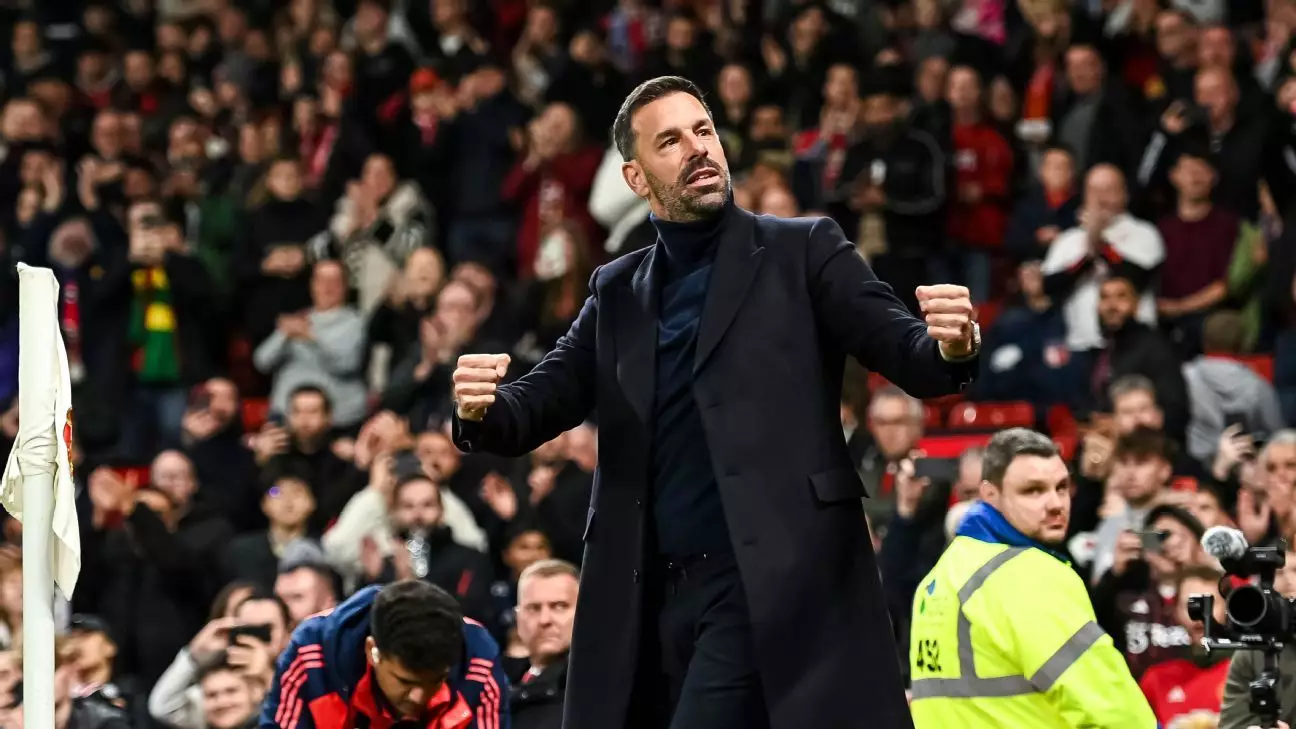The recent shift in leadership at Manchester United has brought a wave of speculation and excitement within the fanbase. The departure of Ruud van Nistelrooy, an interim head coach who managed to win three out of four games, has opened the door for Rúben Amorim, whose tactical vision aims to reshape the team’s dynamics and performance. This article delves into the implications of these changes, the transitional challenges ahead, and the potential for success under Amorim’s stewardship.
Ruud van Nistelrooy’s short tenure as interim manager was marked by a promising uptick in performance, demonstrated by eleven goals scored in four matches. However, the circumstances of his departure may leave an ambivalent taste for some fans. While he is celebrated as a club legend, scoring an impressive 150 goals in 219 matches as a player, the transition away from Van Nistelrooy signals a broader need for consistency and long-term vision within the team. The club officially expressed gratitude for his contributions, honoring his commitment to Manchester United, yet the swift pivot to Amorim emphasizes a desire for sustainable progress.
This dilemma of short-term gains versus long-term strategy is indicative of the tumultuous landscape at Old Trafford. After Erik ten Hag’s dismissal, van Nistelrooy’s appointment may have been more about stabilizing the ship than outlining a definitive direction. His success, albeit brief, was not enough to dissuade the club from seeking a more permanent solution.
Rúben Amorim’s appointment comes at an exciting and challenging time. Expected to implement a tactical switch to a 3-4-3 formation, he embodies a shift towards a more modern and flexible style of play. This marks a significant tactical shift, as defended by Matthijs de Ligt, who emphasized the importance of cohesion among the players in adapting to this new structure. Amorim’s reputation in Portugal is formidable; he notably transformed Sporting CP into a competitive force, clinching trophies and fostering a winning mentality.
However, the success of these strategies rests heavily on his ability to instill a sense of unity within the squad. The challenge of getting players on the same page is daunting, especially considering the demanding nature of contemporary football. If Amorim can efficiently communicate his tactical vision, reinforcing both discipline and creativity, Manchester United may just embark on a flourishing new chapter in their storied history.
The most pressing challenge for Amorim lies not just in the switch to a back three but cultivating a resilient team identity. De Ligt’s assertion that a team’s success hinges on compactness and individual roles is astute. The adaptation process requires significant effort from both players and coaching staff to instill a collective understanding of the game plan. Success in the 3-4-3 relies on fluid transitions, an organized defense, and exploiting wing play—all elements that will necessitate meticulous training and a thorough grasp of tactics.
With several key players, including Casemiro, yet to directly interface with Amorim due to the international break, the timing of this transition could not have been more delicate. The new manager must remain patient and focus on rebuilding relationships, stabilizing morale, and achieving a shared understanding of the game plan.
As Manchester United gears up for the upcoming match against Ipswich Town on November 24, hopes are high for Amorim’s fresh approach. The resources are undoubtedly at his disposal, and if his past coaching successes are anything to go by, he could have the potential to unlock further accomplishments at Old Trafford. The connection between his tactical vision and the squad’s adaptation will likely define the trajectory of his tenure.
The departure of Van Nistelrooy and the arrival of Amorim mark a pivotal moment for Manchester United. There lies an opportunity for reinvigoration under a promising coach. Whether this marks the dawn of a new era will depend on how effectively Amorim can harmonize the team, navigate tactical challenges, and engage with players to build a formidable squad capable of competing at the highest level. The stage is set; it is now up to Amorim to deliver.

Leave a Reply